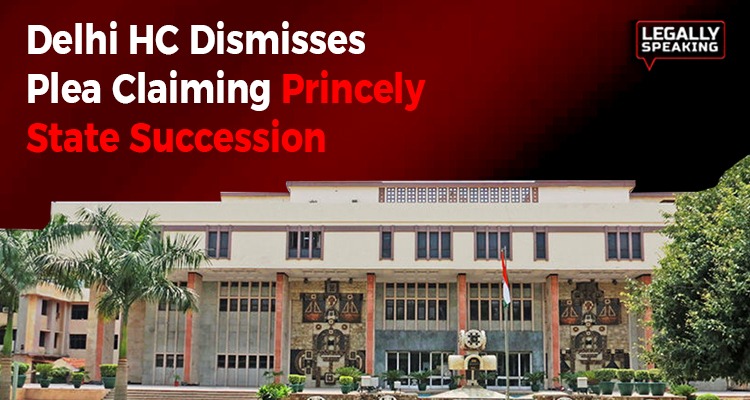
The Delhi High Court has dismissed the plea of Kunwar Mahendra Pratap Singh.
Kunwar Mahendra Dhwaj Singh was ordered to pay Rs 10,000 in costs by the high court, which deemed the petition an abuse of the legal process and a waste of judicial time.
Singh had sought compensation from the government for the acquisition of areas in Agra, Meerut, Delhi, Gurgaon, and Uttarakhand, which he claimed were under his territory.
Justice Subramonium Prasad dismissed the plea, stating, “This Court is inclined to dismiss the writ petition by imposing costs of Rs 10,000 on the petitioner.”
The court directed Kunwar Mahendra Dhwaj Singh to deposit the costs with the Armed Forces Battle Casualties Welfare Fund within four weeks from that day.
The bench, while dismissing the petition, expressed, “This Court is of the opinion that the writ petition is completely misconceived. The claims raised by the Petitioner in the present Writ Petition cannot be gone into or adjudicated in a writ petition.”
It noted that the petitioner’s submission of maps and historical accounts did not establish the existence of the Beswan family or the petitioner’s rights.
The High Court emphasized, “This Court is of the opinion that this Writ Petition raises pure questions of facts and the Petitioner has not been able to establish the area under the control of the Beswan family and the right of the Petitioner to succeed the Princely State of Beswan family.”
The court pointed out that the petitioner needed to substantiate his contentions through appropriate legal proceedings, presenting documentary and oral evidence.
It clarified that a written petition was not the remedy for the relief sought by the petitioner.
The high court further stated that Writ courts should not engage in investigative matters more suitable for a Civil Court in a properly contested suit.
Questions of fact requiring determination should be adjudicated through a suit, and proceedings under Article 226 of the Constitution of India were not the proper remedy.
The court concluded that the writ petition was an abuse of the legal process and a waste of judicial time.
The petitioner claimed to be the successor and heir of the Beswan family, asserting property rights over the Beswan Avibhajya Rajya.
This included territories spanning the United Province of Agra between the rivers Yamuna and Ganga, encompassing Agra, Meerut, Aligarh, Bulandshahr, Delhi, Gurgaon, and Uttarakhand, along with 65 revenue estates.
The petitioner relied on the Raja Mahendra Pratap Short Title Singh Estates Act, 1923, and a Sanad granted on September 7, 1924, in favor of Prem Pratap Singh by the British Government.
However, the Union of India repealed the Act in 1960 through the Mahendra Pratap Singh Estates (Repeal) Bill, 1960.
The petitioner argued that the Beswan Avibhajya Rajya still held the status of a princely State, and his family maintained control over the mentioned territories.
Historical disputes and legal judgments were cited to support his claims, including a Privy Council decision in 1900.
Despite these contentions, the high court found the writ petition baseless, emphasizing that the petitioner failed to prove the Beswan family’s control over the mentioned territories.
The court concluded that the petitioner’s claims required proper legal proceedings and evidence, rather than a writ petition.




